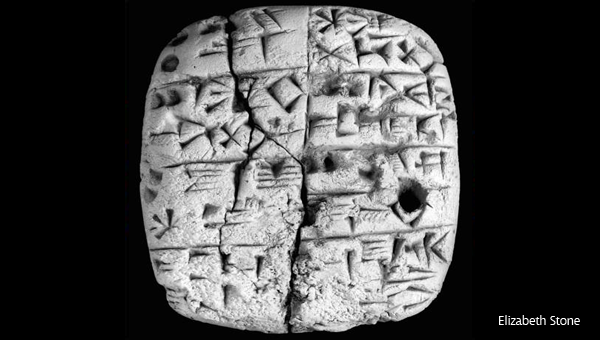American University returns 10,000 ancient tablets to Iraq
In a move that has pleased many historians and archaeologists, Cornell University has forfeited their vast collection of cuneiform tablets, which detail daily life in ancient Mesopotamia, considered to be the cradle of civilisation. It is the largest return of antiquities by a U.S. university.
The 10,000 inscribed clay blocks date from the 4th millennium BC and provide detailed administrative records of ancient life, including the procedures for temple rituals, the resettlement of refugees and the output of agricultural lands.
One tablet in particular has provided a fascinating insight into the role of women in the ancient kingdom of Ur, an important Sumerian city-state in ancient Mesopotamia. The tablet describes a Sumerian princess, Simat-Ishtaran, who ruled an estate in the city of Garsana after her husband died, revealing that women were able to attain high status positions, supervise men, receive equal salaries and even work in construction jobs.
"It's our first real archival discovery of an institution run by a woman," said David Owen, the Cornell researcher who has led the study of the tablets. Because scholars do not know precisely where the tablets were found, however, the site of ancient Garsana cannot be excavated for further information.
The tablets were donated by the family of New York antiquities collector Jonathan Rosen to Cornell University in 2000. Many scholars have objected to the arrangement, suspecting the tablets were looted in Iraq after the 1991 Gulf War.
The Iraqi government requested the return of the tablets last year, and the U.S. attorney's office in New York is organising the transfer. "We're not accusing anyone of a crime, but we believe they should be returned," said Assistant U.S. Attorney Miro Lovric.
Other American universities have recently returned ancient artefacts after evidence emerged that the objects might have been looted. Last year, Princeton University returned about 170 objects and fragments to Italy and Ohio's Bowling Green State University said it was willing to return a dozen ancient mosaics to Turkey.
Cornell University hopes to continue its study of the tablets through cooperation with Iraqi institutions. "Study of these cuneiform tablets is providing much new data on the history, literature, religion, language and culture of ancient Iraq that is filling major gaps in our knowledge of Mesopotamian civilization," said David Owen.


















Comments
Dear Birdog, I am happy to hear it! Thanks very much for the feedback. April
Love your writing style April and your topics. Bravo